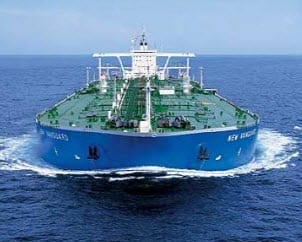Pending the go-ahead from the U.N nuclear watchdog changes will go into effect on January 20.
The governments in the European Union are planning to implement relief to the EU oil insurance and other sanctions that were placed against Iran, on January 20, the day after a nuclear agreement goes into effect.
This will mean that the Middle Eastern country will be able to find coverage for its crude exports.
 Following an accord from November 24, the E.U. will be implementing a six month suspension of the current bans on transporting Iranian crude and covering it with oil insurance. This will also lift a trade ban on the petrochemicals and precious metals (such as gold) from the country. The accord will become effective on Monday as long as the U.N.’s nuclear watchdog, the International Atomic Energy Agency (IAEA) confirms that Iran has upheld its end of the bargain, which means that it will need to reduce its sensitive nuclear projects.
Following an accord from November 24, the E.U. will be implementing a six month suspension of the current bans on transporting Iranian crude and covering it with oil insurance. This will also lift a trade ban on the petrochemicals and precious metals (such as gold) from the country. The accord will become effective on Monday as long as the U.N.’s nuclear watchdog, the International Atomic Energy Agency (IAEA) confirms that Iran has upheld its end of the bargain, which means that it will need to reduce its sensitive nuclear projects.
The lack of oil insurance as a result of the sanctions has slashed away Iran’s ability to export crude.
One official from the E.U. stated that “Everything the EU does goes into effect on Jan. 20.” The crude markets have a close eye on the provisions for coverage, as the Protection and Indemnity (P&I) clubs in Europe provide the majority of the coverage for the tankers sailing worldwide.
In fact, that group provides coverage for an estimated 95 percent of the entire global tanker fleet. It has stated that it is welcoming the opportunity to be able to expand that to Iran’s exports once more, but that it would require a step by step approach to entering back into the Iranian market once more.
This upcoming agreement will also make it possible for third country purchases of crude from Iran to stay at their current levels. It does not predict that there will be any greater sales in Iranian oil. Due to the sanctions, the tankers that have been transporting Iranian crude have had extremely limited oil insurance options. The alternatives that were available were, for the most part, arranged by the importers.
